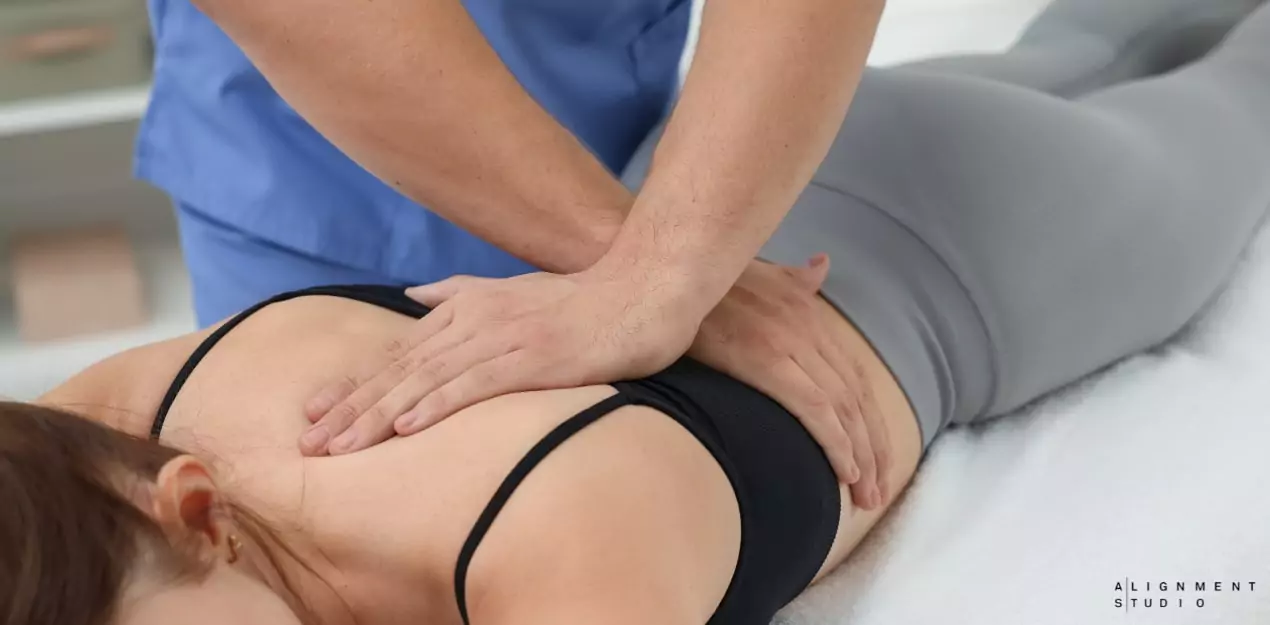Don’t suffer bladder, bowel or pelvic floor dysfunction or pain in silence – women’s health physiotherapy can help. A women’s health physiotherapist is equipped to identify and treat a variety of women’s health concerns, from overactive bladder symptoms to incontinence, pelvic girdle pain and pelvic organ prolapse. With the post-graduate study and extensive training required to become a women’s health physiotherapist the Australian Physiotherapy Association bestows a title of specialist physiotherapist on those therapists in this important area of practice.
While many pelvic health concerns will first arise during pregnancy, a women’s health physiotherapist can improve the lives of women from early adulthood to childbirth, menopause and beyond. Read on to discover more, and to book a consultation with a leading women’s health physiotherapist in Melbourne, call us on 03 9650 2220.
When should you see a women’s health physiotherapist?
Treating conditions associated with the pelvic floor, such as bladder and bowel dysfunction, women’s health physiotherapy can be particularly beneficial for pre and postnatal women and peri and postmenopausal women. A trained women’s health physio in melbourne can assist with conditions including:
- Stress incontinence – involuntary urine leakage during everyday activities and actions, e.g. exercise, laughing, coughing or sneezing
- Overactive Bladder symptoms – urinary frequency, urgency (a sudden, urgent need to pass urine) and urge incontinence, nocturia (getting up to pass urine overnight)
- Bowel symptoms – faecal urgency and incontinence, problems with bowel evacuation, chronic constipation
- Pelvic organ prolapse (descent of the bladder, uterus or bowel, causing symptoms)
- Vaginismus (spasm of the vaginal muscles) and dyspareunia (painful intercourse)
- Overactive pelvic floor (seen in conditions such as endometriosis and chronic pelvic pain)
- Pelvic girdle pain during or following pregnancy
- Separation of abdominal muscles during pregnancy/childbirth (diastasis recti)
- Carpal tunnel syndrome – often associated with pregnancy.
Appropriate early intervention can help in the management and/or resolution of many of these symptoms.
What techniques does a women’s health physiotherapist use?
A women’s health physiotherapist may use various techniques, such as:
- Pelvic floor muscle awareness and training
- Down-training for an overactive pelvic floor
- Bladder training
- Advice for prolapse management
- Biofeedback for bowel evacuation retraining
- Pelvic floor-safe exercise advice
- Post-surgical rehabilitation and exercise advice (following gynaecological surgery)
- Prescription of abdominal support garments, pelvic girdle belts and other supports
- Core muscle training
- Real Time Ultrasound for visual biofeedback
- Occasionally, specialised equipment and small hand-held machines may be used.
What happens during your consultation?
The women’s health physiotherapist will take a comprehensive history including your general health, occupation and regular physical activities, your obstetric and gynaecological history, and ask for details about your bladder, bowel and sexual health at your first visit. This will highlight key areas of interest.
The physiotherapist will often do a pelvic floor examination at the first or second visit. This usually involves an internal examination if you are comfortable to proceed. Its purpose is to gain more information about your pelvic floor strength and function.
Following this, goals are set and a treatment plan is discussed, including some of the physiotherapy techniques that may be used and a realistic timeframe for achieving them. The physiotherapist will often prescribe a pelvic floor home program for you and ask you to fill diaries to bring back on subsequent visits. Maintaining healthy bladder and bowel habits is an integral part of this plan, as is weight management and an appropriate general exercise program.
Do you need a referral to see a women’s health physiotherapist?
A referral from a GP or Specialist is not essential, but is useful for women over 50 or with complex health conditions. You should bring any relevant scans and reports, details of prior surgeries and a list of current medications.
If it is a complex or chronic condition that you have had for six months or more, and a specialist and/or other allied health professionals are involved, you may qualify for a Medicare Team Care arrangement. The Care Plan is devised by your GP and is subsidised by Medicare for up to five visits in a calendar year; however, there will be a gap payment. Your GP can tell you whether you are eligible.
Women’s Health Physiotherapy at The Alignment Studio
If you’re looking for a women’s health physiotherapist in Melbourne, The Alignment Studio has recently welcomed Peony Fernandes to the team. With over 25 years’ experience as a women and men’s health physiotherapist, Peony can assist with advice for early prevention, as well as pelvic floor re-education and management of your symptoms.
To improve your pelvic health and quality of life, book an appointment with Peony today!
Also, for more information about the differences between physiotherapy or remedial massage and which one is better for you make sure to read our latest blog covering this topic.
Image Source





